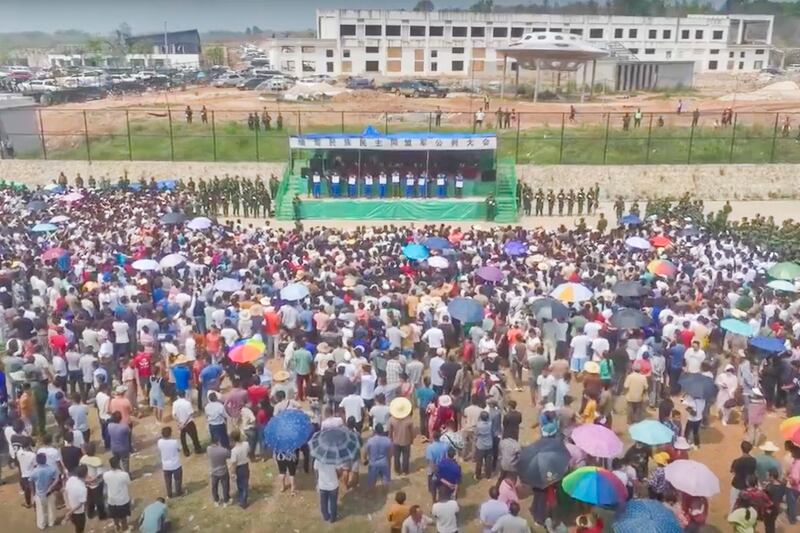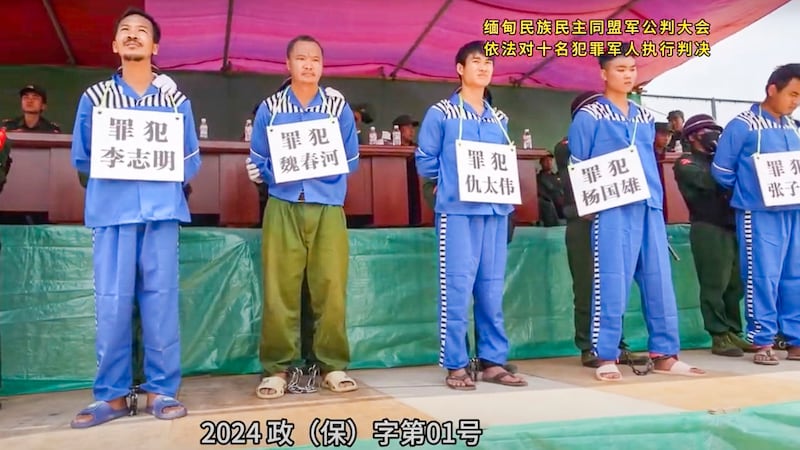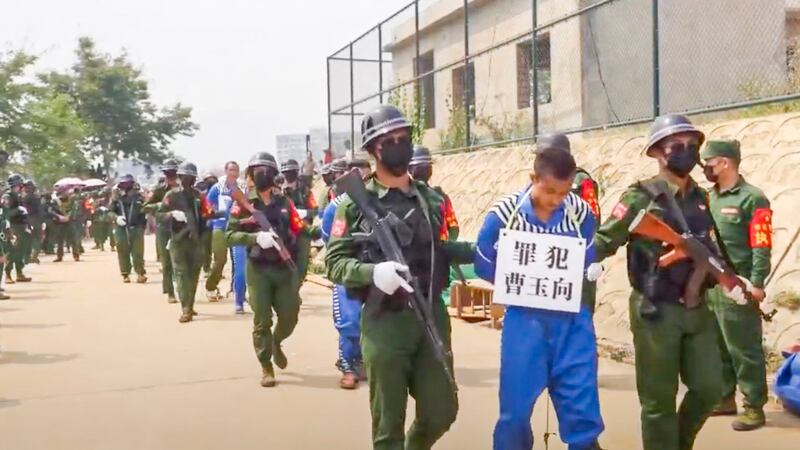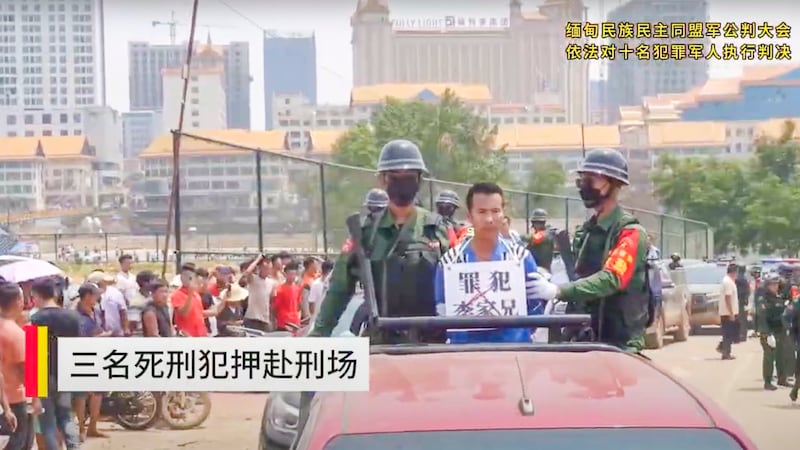The video opens with an overhead shot of 10 individuals wearing blue jumpsuits on a stage adorned with banners in Chinese and large loudspeakers before slowly pulling back to reveal hundreds of spectators – several of them clutching brightly colored umbrellas to keep the sun off their faces.
But this is not a performance. The images captured in northeastern Myanmar’s Kokang region, in Shan state near China, show a public trial in the capital Laukkai by the Myanmar National Democratic Alliance Army, or MNDAA, of members of their own ethnic army accused of “abuse of power.”
Among them is a 36-year-old district commander and two other guerrillas who the ethnic army said in a statement on Thursday it had executed following the trial on April 24. The remaining seven fighters received prison sentences, the MNDAA said.
The highly produced three-minute video provides a rare look at how the rebel army metes out justice to its own in the Kokang region after it captured Laukkai on Jan. 4.
The group is one of three ethnic militias making up the Three Brotherhood Alliance – along with the Ta’ang National Liberation Army and the Arakan Army – that has dealt the junta’s military forces a series of defeats since late last October. Their offensive has turned the tide in the civil war that broke out after the military overthrew a democratically elected government in a February 2021 coup d’etat.
In the video, which features a rousing, militaristic soundtrack, onlookers snap photos with their cellphones while officials in fatigues read out the alleged crimes of the 10 soldiers and their punishments. Within the crowd are families with young children, as well as groups of students with their instructors.
EU condemns executions
At the conclusion of the trial, the soldiers are led away in arm and leg shackles with signs hung around their necks identifying them as criminals in bold Chinese characters.
Three of the signs sport red Xs on them, marking those condemned to death. These men are made to stand in vehicles as they are driven through Laukkai to a field on the outskirts of the capital.

The next segment shows the three being led into the field before the picture fades to black. An order is heard and shots ring out, although no execution is shown.
In a statement on Thursday, the European Union condemned the executions “in the strongest terms,” calling them “an inhuman and degrading punishment that represents an ultimate denial of human dignity.”
The EU added that upholding the rule of law in accordance with international standards is an “effort integral to the aspirations for federal democracy.”

Attempts by RFA to contact MNDAA spokesperson Lee Kyar Win for additional information went unanswered.
Kokang has long been in China's orbit, and many of its residents are ethnically Chinese. In the mid-20th century, Kokang served as a base for Myanmar communists, before the Communist Party of Burma collapsed in 1989.
In recent months, China had expressed increasing frustration with organized crime rings that had been allowed to operate in Kokang by junta-aligned forces. An estimated 120,000 people are being held in Myanmar against their will. Chinese nationals have both been trafficked by these groups and fleeced by them.

In its statement, the MNDAA said that the district commander who was sentenced to death had been involved in the kidnapping of two Burmese drivers, more than 10 Chinese nationals and six Vietnamese nationals between July and September of 2023. He also took part in the murder of two Chinese nationals, it said.
The other two fighters sentenced to death had served in the Logistics Department of Brigade 311 and were convicted of the theft and sale of weapons, as well as their involvement in “deadly kidnappings.”

Of the remaining seven soldiers, a deputy battalion commander of an MNDAA-aligned militia force and the deputy commander of Battalion 191 were sentenced to 15 and 20 years in prison, respectively. The other five were sentenced to terms ranging from two to five years in prison.
The MNDAA publicly executed four people on May 2, 2023, after convicting them of kidnapping and murdering Chinese nationals in Shan state’s largest town, Lashio.
Translated by Kalyar Lwin. Edited by Joshua Lipes and Malcolm Foster.
